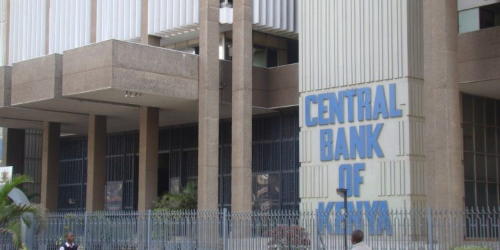Kenyan Banks Boost Govt Debt Holdings as Private Sector Lending Slows

TLDR
- Kenyan banks increased their investments in government securities while tightening private sector lending, even as returns on domestic debt declined
- Despite falling yields, demand for short-term debt remains high, with recent auctions oversubscribed by over 200%
- Equity Group’s Kenyan unit increased government securities holdings by 21% while cutting net loans to customers by nearly 6%
Kenyan banks increased their investments in government securities while tightening private sector lending, even as returns on domestic debt declined. The yield on 91-day Treasury bills dropped to 8.79% at the March 27 auction, down from 15.7% in September. The 364-day bills now yield 10.4%, compared to 16.8% a year ago.
Despite falling yields, demand for short-term debt remains high, with recent auctions oversubscribed by over 200%, according to Absa Bank Kenya CFO Yusuf Omari. However, Omari expects banks to shift gradually toward lending as yields normalize and consumer demand recovers.
Equity Group’s Kenyan unit increased government securities holdings by 21% while cutting net loans to customers by nearly 6%. Standard Chartered Bank Kenya boosted its securities exposure by 46% year-on-year and reduced customer loans by 7%. Banks’ overall share of domestic government securities has held steady around 45% since mid-2023, according to central bank data.
Daba is Africa's leading investment platform for private and public markets. Download here
Key Takeaways
Kenyan banks are leaning on low-risk government debt amid softening loan demand and rising macroeconomic uncertainty. Falling yields have not deterred investment in Treasury bills, driven by liquidity needs and limited short-term credit appetite. High taxes and inflation continue to pressure household budgets, weakening the retail loan market. While corporate lending may offer modest upside, analysts suggest banks will maintain a cautious stance until economic fundamentals improve. Equity Group and Standard Chartered’s shift back toward sovereign paper—despite falling returns—highlights a preference for predictable yield over retail credit risk. “Lazy banking,” a term used to describe risk-averse capital allocation, appears to be prevailing in 2025. Still, with interest rates falling and consumer pressure easing slowly, banks may begin redirecting funds toward private sector lending later in the year. For now, however, government securities remain the preferred buffer for navigating subdued demand and preserving balance sheet health in a tightening economic environment.

Next Frontier
Stay up to date on major news and events in African markets. Delivered weekly.
Pulse54
UDeep-dives into what’s old and new in Africa’s investment landscape. Delivered twice monthly.
Events
Sign up to stay informed about our regular webinars, product launches, and exhibitions.




